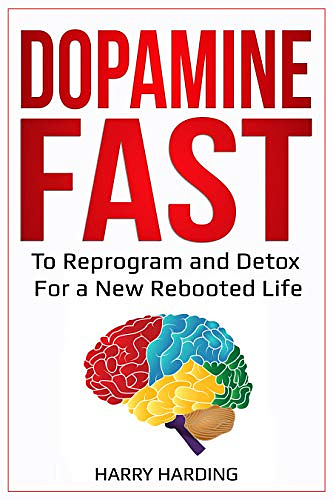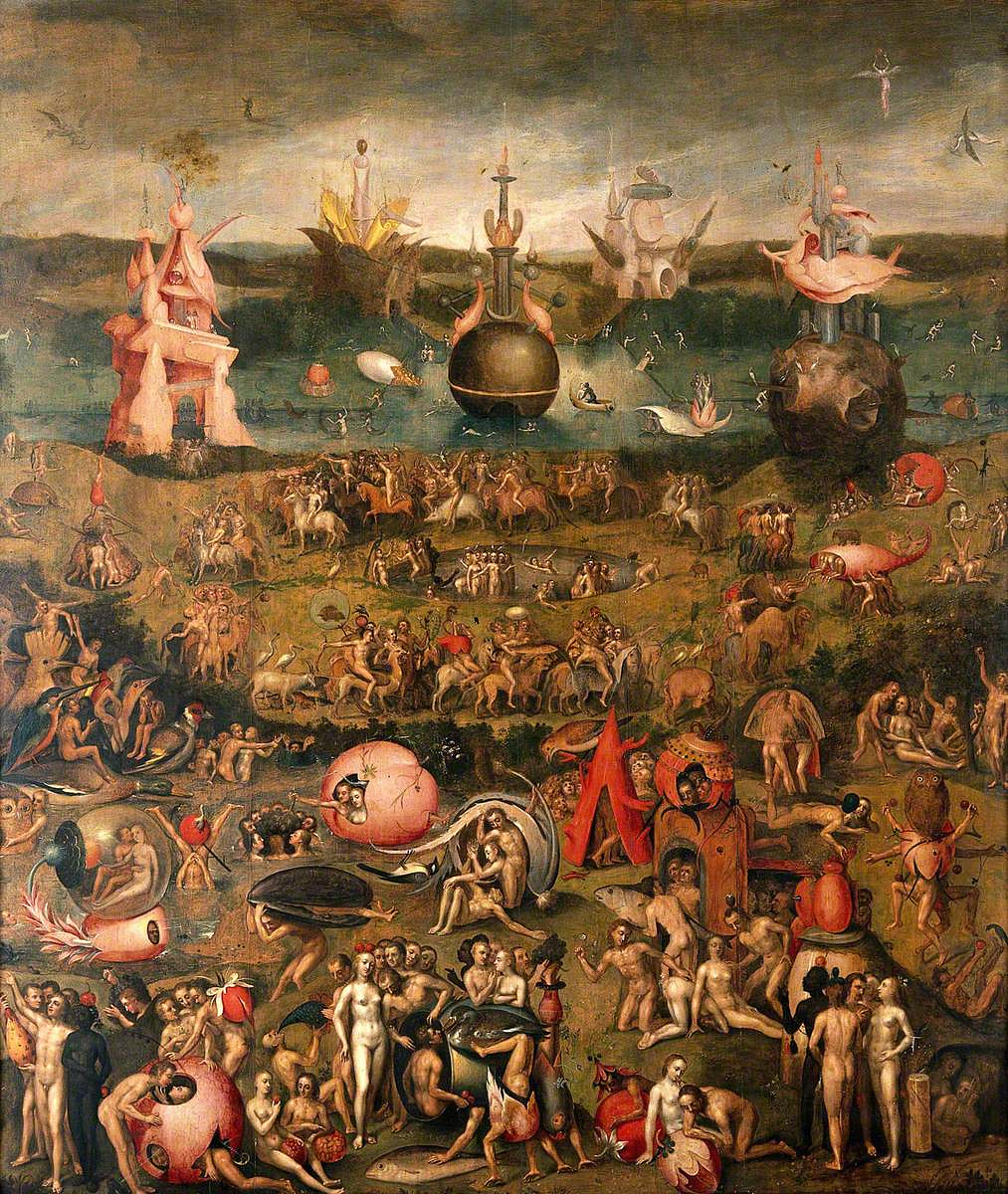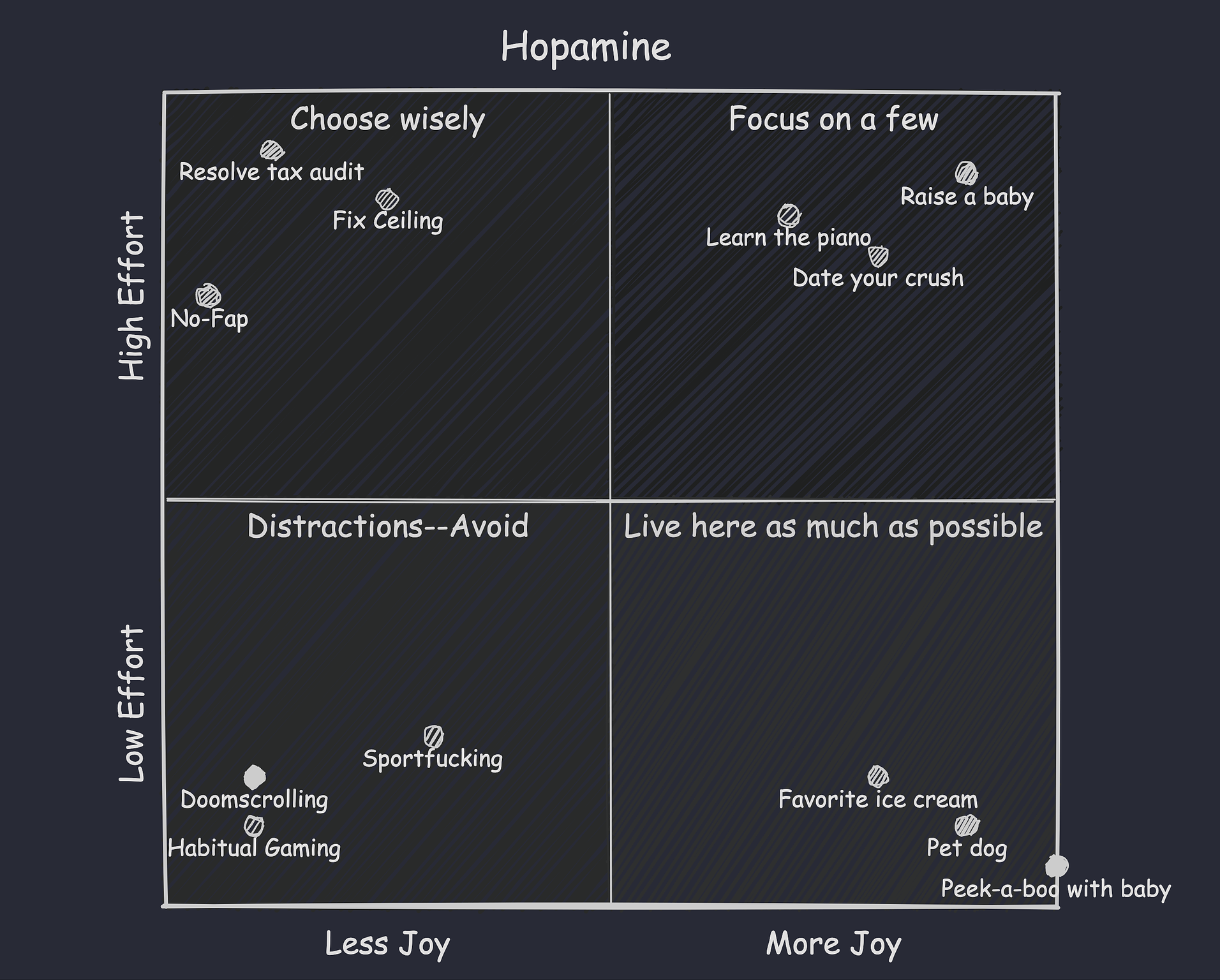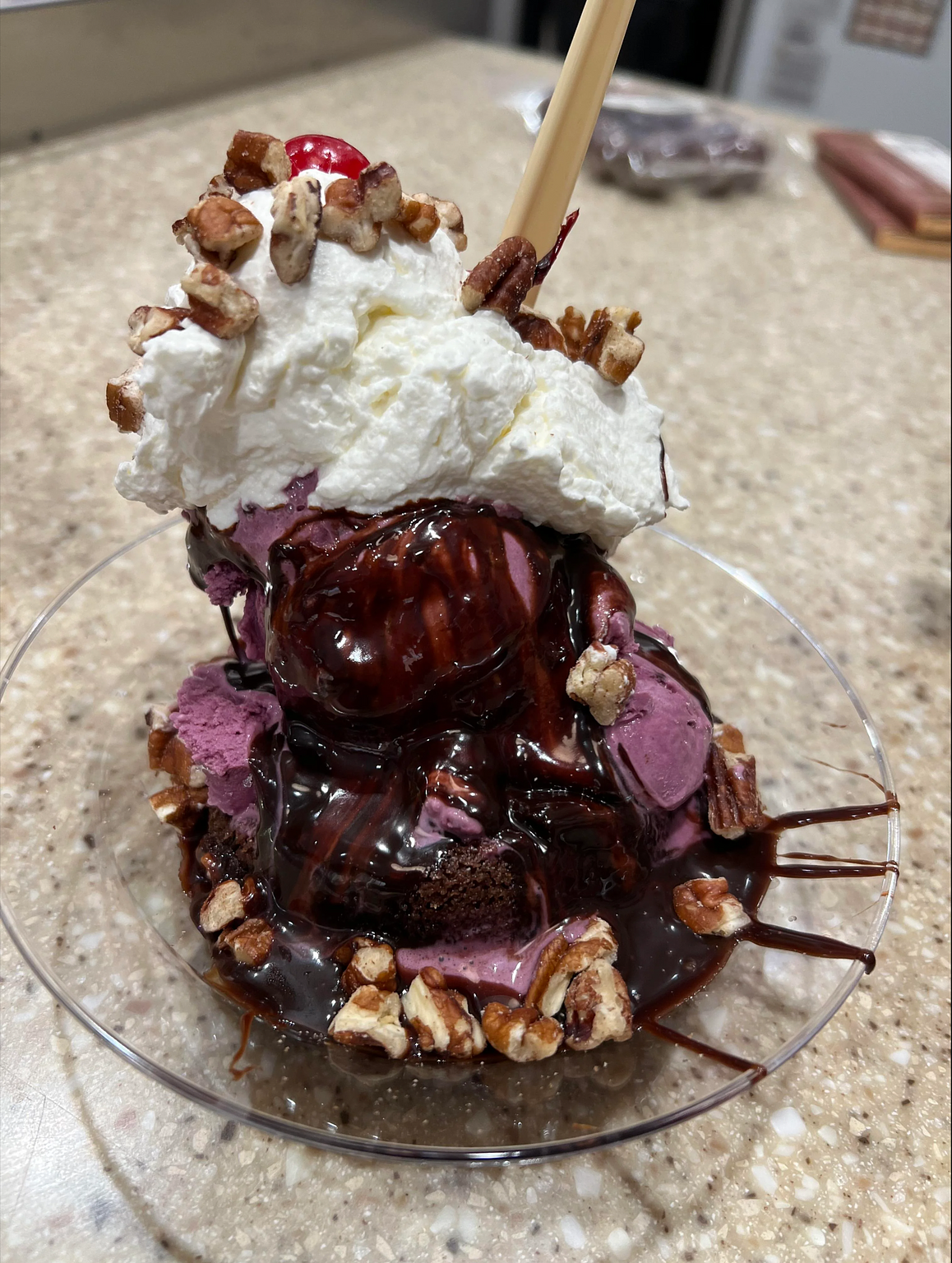Copamine
falling ceilingsThen were there brought unto him little children, that he should put his hands on them, and pray: and the disciples rebuked them. But Jesus said, Suffer little children, and forbid them not, to come unto me: for of such is the kingdom of heaven.
A small digression from what I thought I would write today. I had wanted to write a little about the Protestant Productivity Ethic I briefly developed in my last entry, but I happened to hear a bit of a podcast I wanted to complain about.
My podcast player thought I should hear a recent entry from Cal Newport's podcast, "Rethinking Discipline". I didn't listen to much of it. Cal Newport is a more recent productivity guru and I will get around to him eventually (tho to be honest I know little of his actual work, just the grab-bag of 'hacks' associated with him).
I didn't listen very long because I tend to bail on anyone who talks about dopamine unironically as a miasma responsible for most of our social ills. The episode got worse. Pretty sure I heard whoever was the primary speaker talk of 'storing experiences in your hippocampus' as an action you can take.
I am not such an anti-materialist that I would deny that brains have something to do with minds. After all, I sustained a TBI that changed my life. But the materialist reductionism in much pop-pysch discourse makes humorism seem downright credible. Your mind is not your brain. (The big news is that you don't have a mind to begin with, but maybe we will get to that in posts far in the future.)
What I want to talk a little about is the demonization of dopamine. We've lost our minds. People unironically talk about dopamine hits when they engage in anti-social and harmful behavior. People are even so dumb as to take dopamine fasts and write books dedicated to such an absurd idea.

Now maybe Harry Harding isn't as stupid as his book's title or cover, but at a minimum he is shameless enough to have allowed his name to be placed on such a thing, so he can take a public jab or two.
The way dopamine discourse goes is something like this. Dopamine is a pleasure chemical. We seek to do things which increase it. And there are some very easy ways to increase dopamine which have less than great long-term consequences. Almost any ill can be blamed on 'dopamine addiction'. Obesity. Opiate addiction. Gambling addiction. Pretty much every addiction. Criminal behavior. And so on.
Have you spent a lot of time with a heroin addict? I have. I can assure you there is nothing about their dopamine hits that is fun. Have you spent much time gaming online? Do guys in an Xbox chatroom sound like they are having a good time? No.

What's the solution to all this? Discipline. The person who is supposedly living in a Garden of Earthly Delights that Adam and Eve would envy needs to learn how to postpone their enjoyment. They've had it too good for too long. They need to eat from the Tree of the Knowledge of Good and Evil. Learn to suffer to accomplish longer time-horizon goals. Cold showers. LIFT. Extreme diets. Total abstinence is the order of the day. DELETE ALL SOCIAL MEDIA. Clean your room, bucko! Maybe, this is about the Protestant Productivity Ethic after all.

To nuance this a bit and give the devil her due, there is the more feminine solution of self-care. Despite all the bubble baths, adult coloring-books, and gratitude practices it's just the other side the coin. It is a discipline. There is work to do. Systems. Hacks. Journaling one's self-care journey. In the end, it sounds pretty miserable.
So what is the problem here? Everyone isn't wrong and some of the discourse above can have some merit, but that will be for another post. And some even understand that 'dopamine' can be good. It's still a silly reductionism. If the advice it ultimately yields is sound, it is so in spite of its neurochemical window dressing.
What I didn't want to do so soon on this blog is share some of my own thoughts and approaches. After all who cares what a guy has to say whose ceiling is on his floor. But I've been pretty damn near where our prelapsarian Eve was in that photo. I've spent a lot time since then around people who hover around that place in life. Now and then, I regress slightly back to my former state of dopamine addiction.
Here's the thing. People are not finding any pleasure or enjoyment in these activities. In these dopamine hits. Zero. In fact, they have forgotten what joy is. They have forgotten what well-being is. Anhedonia is the order of the day. And we condemn them as hedonists! At one point, life had become so utterly tasteless that I made concrete plans on getting out of it and I acted on them. My trip there wasn't a never-ending cycle of short-term pleasure at the cost of long-term pleasure. To make that account of my lived experience sensible, you'd have to beg enough questions to fill a phonebook.
There are solutions to this. I will not discuss them at length here. But there is truly hope. But I just want to introduce a simple matrix. A simple heuristic for recovering from anhedonia, what the idiots call dopamine addiction.

Contrary to the dopamine discourse, the anhedonic shouldn't be throwing themselves full-tilt into the upper quadrants; really no one should. But for the anhedonic it's a disaster. Where they should spend a lot of their time is in the lower-right quadrant, low-effort high-joy activities.
Babies and small children are God's great cure to Weltschmerz. I've been in places as grim as you can imagine. Full of mean and small persons. And a baby or small child enters the room and everyone immediately shifts. Little hints of joy can be seen in a face shaped by six decades of misery. The room brightens. The Kingdom of God pushes into the world.
Pets provide much of the same. There's a near-immediate joy just petting or playing fetch with someone else's pet. (If you are a severe anhedonic, you probably shouldn't be getting your own pet or having your own baby anytime soon.)
These Puritanical preachers of discipline rail against comfort food. It's wonderful for the anhedonic. This doesn't mean eating figurative comfort food. Shitty ice cream and awful fast food. Get your favorite ice cream, if you've ever had good ice cream. Learn to have joy again.

There are many low effort high joy activities and they will differ a little for many of us. But all in all we share a lot in common. And you don't have to make a plan. You don't have to journal about it. You don't have to rate your mood before, during, and after. In fact, you probably shouldn't do any of this. You need to learn that joy and feeling good are at hand.
A recent personal anecdote. I've been sick. I had been very sick. Prior to getting sick, I had decided to take a break from working for others. I had thought it would last a few months, maybe six. After I quit my job to take a break, I started feeling unwell. My wife was self-employed and we were without health insurance. She had been thinking about entering the workforce for a while. My declining health became the motivation to act on those thoughts.
The catch? She hasn't driven a car in a long, long time. So I would be driving her to work until she relearned how to drive well enough to do so herself. No big deal. I am a great driver. I used to love to drive. And this act would be integral to getting the healthcare I needed.
And I hated it.
People where I live had forgotten how to drive during COVID. Driving was miserable to me. And I hadn't realized how badly I had regressed to joylessness having been so sick. And when you have been teetering on the cusp of full-blown anhedonia, it doesn't take much to tip the scales. This drive was going to do it to me.
One morning I was watching my instant MPG readout on my dash and started playing around with trying to increase it during the drive. A lot of agita from driving disappeared. I remembered that some maniacs go all out trying to maximize their MPG. So I went home and hyperfocused on hypermiling for about six hours until I had to pick up my wife from work.

Over the next few days, I started implementing some tips from the internet. I hit up an internet bud to chat a little about some of the more outlandish and speculative aspects of hypermiling. He's a car guy; I am not. I got to learn a little more about his life. It was nice. The drive was no longer a misery. I had this little game now to play. A game that on its face is silly. (Being silly is a great lower-right quadrant activity). I had some self-deprecating jokes for my wife on her commute. Absurd minute by minute updates. (My wife tolerates a lot.) Driving became sorta fun.
In less than a week, my wife remarked I seemed to be feeling better and my mood was up. Like my long-standing physical symptoms were improving enough for her to notice. Could I be healing just because I am trying to push an Elantra to 42+ MPG without completely alienating every other driver on the road?
I noticed that I was laughing when alone. Laughing to myself has been a persistent feature of my personality. And it had been gone for a long time. (Laughing is another great lower-right quadrant activity.) After ten days, I felt better than I had in a long while. And I had started getting things done which encroached on the upper-right quadrant. One thing in particular I had been putting off, I made great progress on this week. (Not the ceiling. It's still on the floor. Once it's taken care of, I think I have to delete this blog.) Could this all be due to a small change? Playing a silly game?
I think so. In fact, I know it. And this is a topic I will be returning to again before I fix my ceiling. It's an important one. The big question being: why have so many of us forgotten or perhaps have never known joy? That's a huge topic.
But to review the hopamine matrix once more. I know a few of you reading this need this point of emphasis. Start spending more time in the lower-right quadrant.

Feel free to comment: how has dopamine ruined your life recently?
